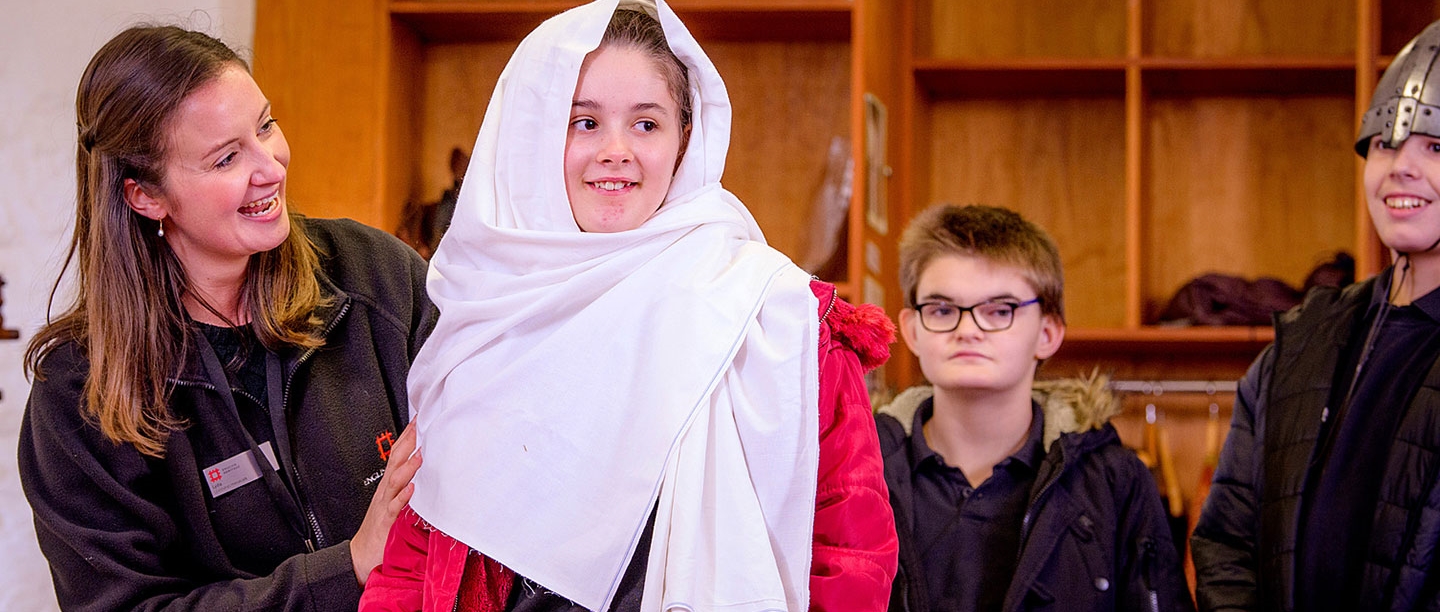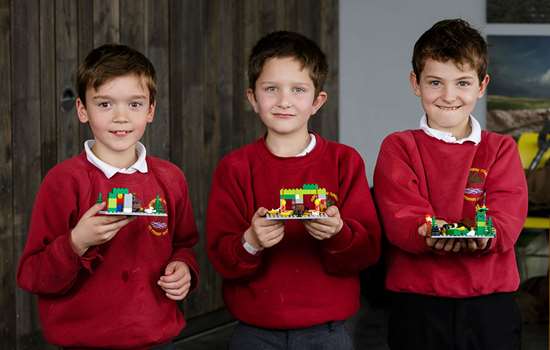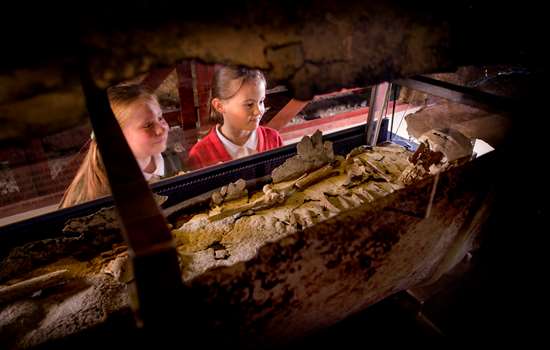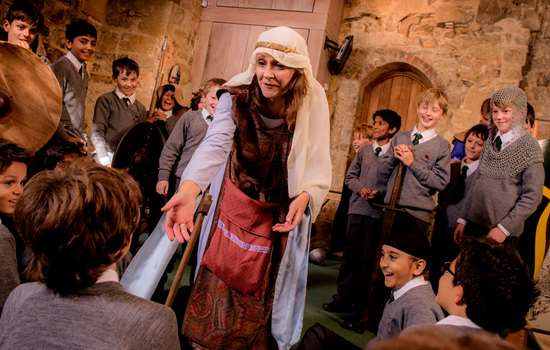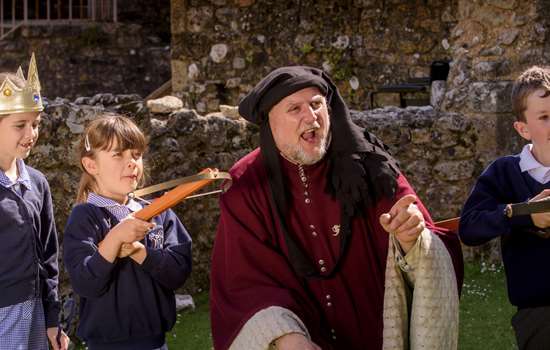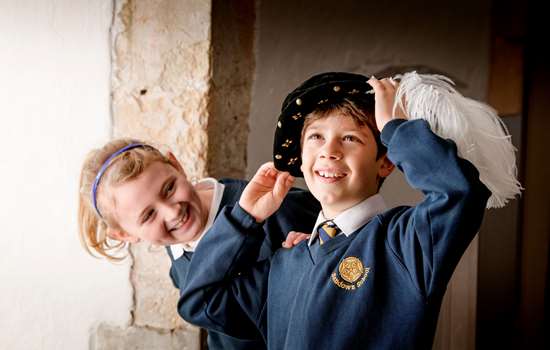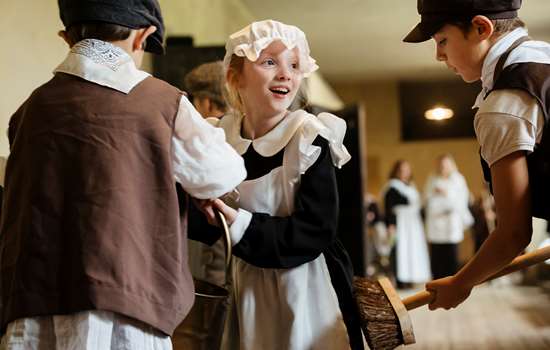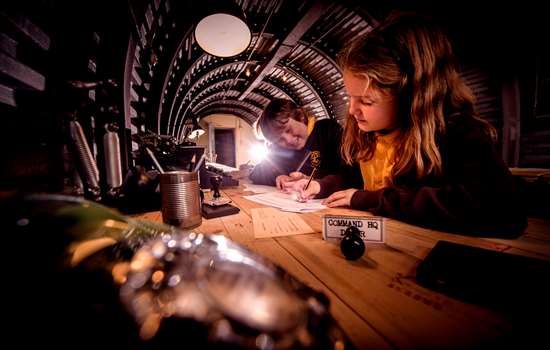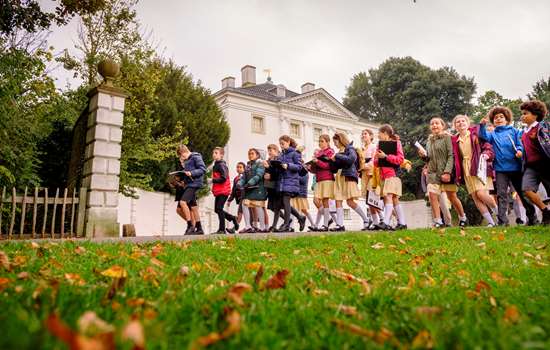10 Reasons To Study History
- It builds enquiry skills through asking and answering well-framed questions
- It encourages consideration of possibilities
- It fuels the imagination
- It promotes an ability to see different perspectives
- It increases appreciation of cause and consequence; change and continuity
- It inspires conceptual thinking
- It allows for key skills to be practised
- It supports cross-curricular study
- It provides lots of opportunity for creative expressions of learning
- It engenders a sense of self in context
English Heritage Teaching Resources
We’re here to support your learning whether you're a teacher looking to complement your lesson planning or a parent looking for guidance and advice around home learning. Our wide range of free downloadable resources have been developed by our team of qualified teachers, educational experts and historians, and have been designed to support learners of all ages and abilities.
Explore our teaching resourcesTeaching by Topic
In our new series of subject-specific guides, we gather advice from our historians and learning experts on how to teach the different topics your learners may encounter when studying history.
Top Tips for Establishing a Sense of Time
Many children, particularly younger ones, find it hard to understand just how long ago historical events happened. Follow our tips to help your learners gain a sense of time.
Relate time to their lives, things they know and can relate to. How are things the same or different?
Explore historical periods beyond the topic in question. What did people wear, do, eat, believe…?
Use stories to discuss the sequencing of events. What happened when and why?
Identify different scales and patterns of time. Before and after, decade, century, millennium, Tudor.
Try to be specific. Vague terms like ‘long ago’ are not that helpful!
Revisit regularly and keep building up a picture. If you have space, display a timeline and add to it as you learn.
Using Sources: things to consider
Analysing and understanding sources is a vital part of studying history. Primary sources are contemporary – from or around the time of the period of study. Secondary sources are created by people who were not there, for example a modern historian writing about an event. Particular care should be taken with archaeological evidence – excavated objects and deposits are primary, but they’re always interpreted by archaeologists so are by definition secondary.
Here are some tips for what your learners should be thinking about when they study sources.
What is the nature of the source? Is it an official document, a newspaper photograph, diary entry, portrait…?
Who produced the source? What do you know, or can you find out about them that will help you understand the source better? What were the circumstances of the producer when the source was created and does that have any bearing on the source?
When was the source produced? At or around the time of an event, many years later...
Why was the source produced? For what purpose?
What does the source tell you? What can you learn from it? What does it leave out?
Do you have any knowledge already that you can use to understand the source or place it into context? If you still have questions, these can help you draw inferences from the material.
Is the source reliable? Can you trust what it tells you?
How useful is the source? Remember sources can still be useful, even if they’re not completely reliable. You may still learn something important about what contemporaries believed from any inaccuracies and biases.
Understanding historical interpretation
One key type of source to use when studying history is the work of historians. But everything they write and talk about is subjective. Here are some points for your learners to bear in mind and to help them practise their critical thinking skills.
Historians are products of their own time. They need to be understood within that context. Equally we need to be careful to read them appreciating our own values and circumstances and evaluate accordingly.
History is dynamic. It is written, debated and revised in the light of new approaches to the ‘raw material’ of the past. This may include primary source material ‘from the time’ or secondary sources that come later.
Different perspectives may arise from the political, social or economic context the historian is working in. This includes their gender, race, nationality or perceived purpose of the history.
The relative impact of historical interpretation may depend on the type of history written, the nature and range of sources used, how effectively the historian examines these sources, constructs their analysis and communicates their conclusions.
A historian's influence may be affected by the language and style they use; their ‘readability’ or whether they adopt a balanced or persuasive approach.
Historical interpretations should also be considered in terms of the impact the historian may have had on the wider historiographical community. Have they been a key influencer amongst their fellow professionals or have their views been largely refuted?
Help with home learning
Many parents and carers are supporting their children's learning at home for the very first time, and often in difficult circumstances.
We have gathered together advice from our team of teachers and education experts on how to approach home learning.
Read our home learning helpUseful links for teaching history
- Young Archaeologists' Club
- Historic England Education
- Heritage Learning
- Group for Education in Museums (GEM)
- Historical Association (Membership required for some resources)
Explore more
-
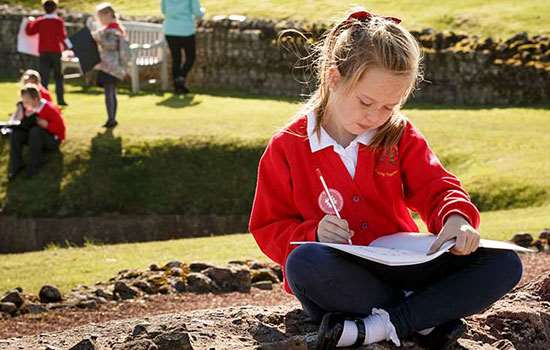
Teaching and Learning Resources
We’re here to support your learning, whether you're a teacher looking to complement your lesson planning or a parent looking to enhance your child’s learning.
-
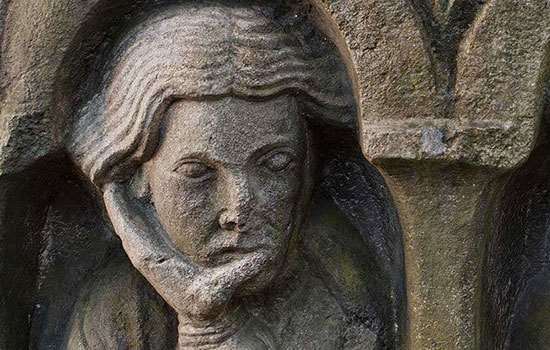
Histories
The places cared for by English Heritage span the story of England, from prehistory to the Cold War. Delve into our history pages to discover more about our sites.
-
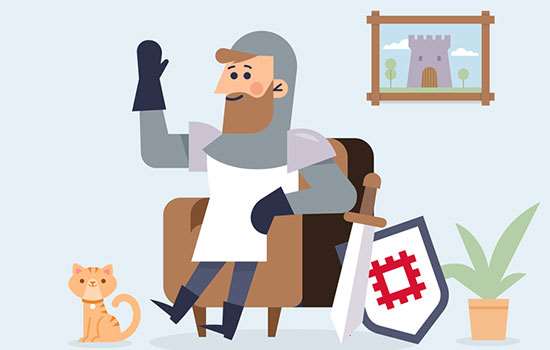
History at Home
Whether you are learning from a site, in a classroom or at home, we’re still here to help you discover the best stories from England’s past.
